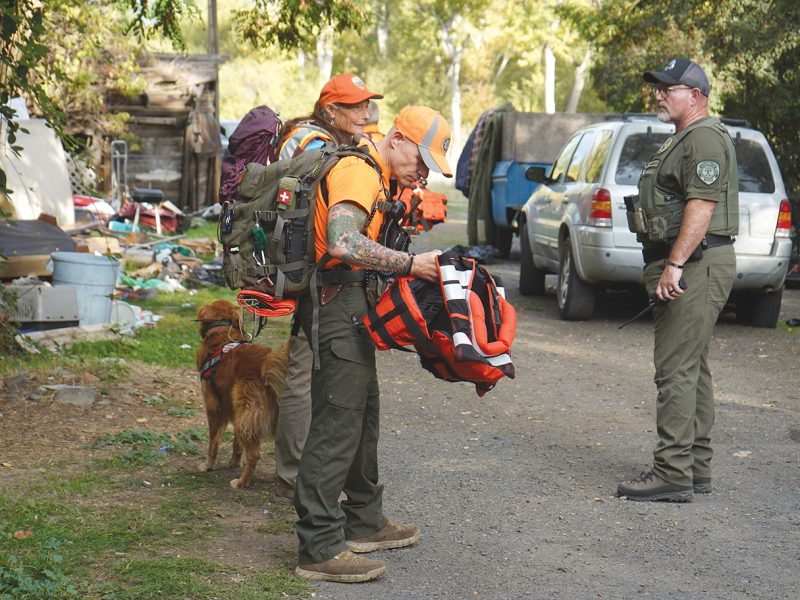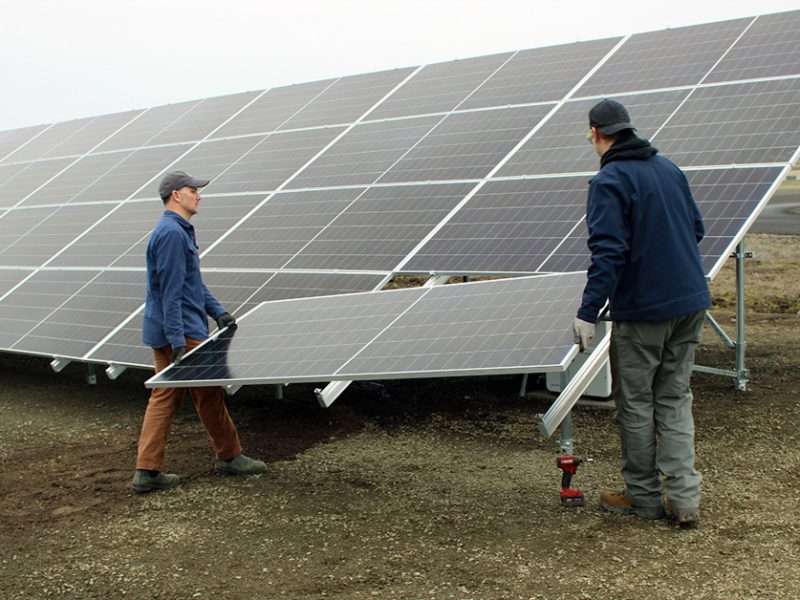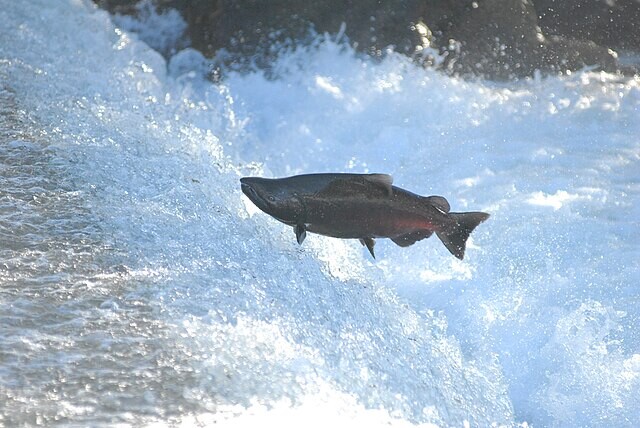By Wil Phinney of the CUJ
MISSION – COVID-19 has locked Longhouse doors not only for celebrations, but for the traditional grieving process of funerals on reservations across Indian Country.
“It’s been difficult because we can’t do all the ceremonies and those ceremonies are what help the family move on,” said Armand Minthorn, a Longhouse Washat religious leader and an elected member of the Board of Trustees for the Confederated Tribes of the Umatilla Indian Reservation (CTUIR).
Since the coronavirus stay-at-home orders were instituted in March, the Confederated Tribes, like the Yakamas, Nez Perces, Warm Springs and Wanapums, have observed shortened funeral services, which have been mostly held at mortuaries.
Two of the three CTUIR funerals during the last two months began with dressings at Burns Mortuary in Pendleton while a third dressing took place at the family home. All three ended with graveside services where family members tried to observe social distancing.
“We can’t go to the Longhouse, that’s the worst thing,” said Brian LaFollette, funeral director at Burns Mortuary. “We do the graveside services, but the families can’t do their normal meals because they are limited to the number of people that can attend.”
Although the process has changed, the culture and traditions remain the same, said Minthorn.
“Families have the beginning of healing with ceremonies and we don’t have those now, but we’re going to trust that they have their own sense of healing because the old people showed us and told us how we can take care of ourselves through tradition and song and ceremony,” Minthorn said. “And we know that people are still doing that even though we can’t do it all together.”
Andrew Wildbill, a young whipman for the Confederated Tribes, usually helps with funerals, but he’s stayed away since the COVID-19 Incident Command put restrictions on large gatherings and funerals.
It’s affected his own family.
“We were all planning a big memorial for my dad’s four sisters, and namings, at the end of this month,” Wildbill said, “but because of this virus influence we’re postponing.”
Wildbill was unable to attend the funeral of his uncle, Fermore Craig Sr., who died in late March, because he was following the Tribes’ guidelines.
“I didn’t want to put my family at risk,” said Wildbill, who, along with his wife Ashley Harding, have three young children.
Not being able to attend funerals is hard on families, Wildbill said, because everybody wants to help out the best they can.
“Friends and family show up at funerals not just to pay respect, but to help a family out. It’s not just about showing support, it’s sharing a song, even just cleaning and cooking. A lot of people chip in little things, whether it’s making a meal or even just bringing something to replace something that’s been lost, material items to help with a giveaway,” Wildbill said.
Wildbill said individuals go through the grieving differently and the Longhouse has always been an avenue for that reflection, whether it’s through a song, witnessing on the Wash, stories about the one who’s passed, or sharing family history.
“Each step has a purpose,” he said. “Taking care of somebody from the dressing to the very last song and the last meal, all of that. I haven’t been present at recent funerals, but all of those honorings and memorials that follow help everybody, give everybody a better understanding.”
LaFollette said the loss of the Longhouse isn’t the only way Tribal funerals have changed.
“It’s not like a normal funeral,” LaFollette said. “Elders are staying home, which is good for them. I’m here to protect the public, the elders, and help people get through difficult times.”
When funerals have taken place Tribal members have been conscientious about using gloves, masks and hand sanitizer, LaFollette said.
Attendance, obviously, has been down even though state regulations have been relaxed so that gathering limits have been lifted to allow 25 people instead of 10.
“Those are my rules in the building, but unfortunately if people have a large family, who are you going to tell they can’t come in, we’re full? That’s wrong,” LaFollette said.
Minthorn said LaFollette has been very understanding as a funeral director and continues to work with the Tribes during this coronavirus.
“He knows what we do. He knows the difficulty of us not being able to do all of our ceremonies. He understands that,” Minthorn said.
But the ceremonies are continuing, even if they are shorter and even if fewer people are allowed to attend.
“That’s the most wonderful thing about ceremonies. It takes all of us to uphold those ceremonies, not just one or two people. No, it’s those ceremonies that take care of us, really take care of us, because they took care of the people before us.
“Never in my short life, I never had anything like this before,” Minthorn said. “It’s a difficult time whether we as people go through it or we go through a loss, a funeral death of a family member, but its old people’s words that tell us to do the best you can. What we’re going through today they would probably say to do the same thing, do the best you can, don’t forget your tradition, your customs, ceremonies or foods.”
Minthorn said funerals are part of the Indian way.
The funeral restrictions created by COVID-19 have left a “feeling of being incomplete,” but not hopelessness, Minthorn said.
“At some point we will be complete. I truly hope and trust that there aren’t any feeling helpless because we have each other. We can all look to one another for help, for guidance and encouragement.”



